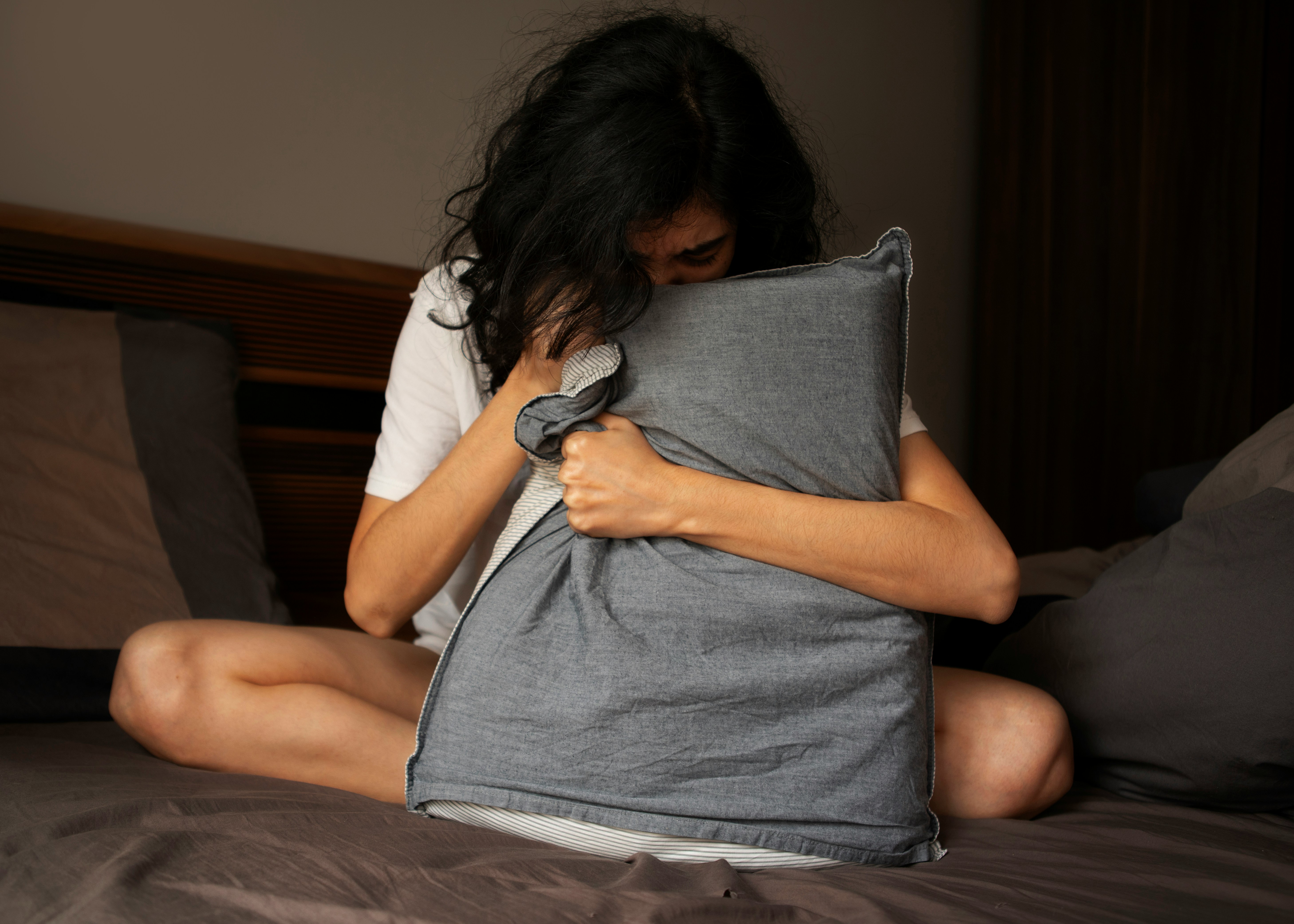And what can we do about it
By Dina Gavarieva
Insomnia has become one of the most quietly destructive afflictions of our age.
While the world around us reels from war, displacement, economic hardship, and daily uncertainty, many people are suffering sleepless nights.
However, for some, insomnia is the first symptom that something deeper is out of balance.
Clinically, insomnia is defined as difficulty falling asleep, staying asleep, or waking too early without being able to get back to sleep – three or more nights per week – for a period of three months or more.
Of course, short-term insomnia, known as acute insomnia, can also profoundly impact mood, memory, immunity, metabolism and emotional resilience.
Given how many people talk about having a difficult night’s sleep, it probably comes as little surprise to hear that insomnia isn’t something that only affects an unlucky few.
According to the World Health Organisation, as many as one in three people worldwide experience insomnia symptoms at some point in their lives.
In high-stress environments or during times of upheaval, these numbers increase.
Insomnia affects people of all ages and backgrounds. Famous sufferers include: Marilyn Monroe, who famously took barbiturates to sleep; Winston Churchill, who swore by afternoon naps to compensate for sleepless nights; and even modern celebrities like Lady Gaga and George Clooney, both of whom have openly discussed their struggles with insomnia.
But while cultural references to sleeplessness can sound poetic or dramatic, the lived experience is often miserable; exhausting nights followed by foggy, anxious days.
Left unchecked, insomnia can also contribute to depression, heart disease and even a shortened lifespan.
Any approach to insomnia should respect it as a complex, multi-layered condition that can arise from many causes because the key to effective treatment lies in first understanding ‘why.’
One of the most common root causes that I come across are neurotransmitter imbalances.
If your brain isn’t producing enough of the calming neurotransmitters GABA or serotonin, sleep may prove elusive. Low serotonin often leads to a racing mind, while GABA deficiency contributes to poor quality, broken sleep.
The way to help this is to supplement with L-tryptophan or 5-HTP to support serotonin levels. Taking GABA (gamma-aminobutyric acid) supplements in the evening can also help the nervous system unwind.
Another common cause is melatonin dysfunction. Melatonin is the hormone responsible for regulating our sleep-wake cycles, and it can become suppressed by stress, ageing and blue light exposure.
Supplementing with melatonin can help, especially in older adults, but also try sleeping in total darkness to support natural melatonin release.
Other measures to take include avoiding blue light screens for two to three hours before bedtime, maintaining regular sleeping and waking times, and taking pineal gland peptides to help restore the pineal gland’s natural rhythm.
As you most likely know one of the biggest enemies of a good night’s sleep is stress.
When our nervous system is stuck in fight-or-flight mode, it’s incredibly hard to switch off at night – our cortisol remains high, the mind races and the body refuses to settle.
To combat this, look into taking phosphatidylserine before bed to help reduce cortisol. Contrast showers (alternating hot and cold water) before bed will also shift the nervous system into rest mode.
Meditation or gentle breathwork can also be beneficial as can other stress busters such as journaling, dancing or going for a hike. Find your best way to switch off and practise it daily.
For pain-related insomnia, such as with chronic illness or inflammation which prevents the body from relaxing enough to sleep, try CBD oil – without the psychotropic THC component.
Another effective pain modulator is the fatty acid PEA (palmitoylethanolamide). Also speak to your GP who might prescribe LDN (low-dose naltrexone) if you have chronic pain and autoimmune issues.
Curcumin can also help – the active compound in turmeric with anti-inflammatory properties. And magnesium is a known muscle relaxant and nerve-soothing mineral.
Another cause of insomnia is blood sugar dysregulation. If you are waking up at 2am or 3am your body might be releasing cortisol due to low blood sugar.
In this case, you need to test and stabilise blood glucose through a well-balanced diet. Also try eating a protein-rich snack an hour before bed if needed, and avoid high-sugar or refined carbohydrate meals in the evening.
Traditional Chinese Medicine further points to different organs dominating at different times of the night. So, if you’re waking consistently at the same hour, an overworked liver, for example, might be calling for help.
Detox pathways through gentle liver support – milk thistle, dandelion, NAC – can help here. As can acupuncture or herbal medicine to restore internal balance. Also avoid alcohol, processed foods and toxic exposures where possible.
And finally, look to your gut. More and more research confirms that poor gut health contributes to poor sleep. An inflamed, toxic gut can interfere with neurotransmitter production and increase systemic stress.
Possible solutions include eliminating potential irritants for at least three months, such as gluten, dairy and sugar.
Also consider a parasite cleanse or gut detox with support from a trained professional, and work to rebuild the microbiome with probiotics, fermented foods and fibre. For the best – and safest – results you are advised to seek the help of an expert naturopath or functional medicine practitioner.
Ultimately, insomnia is not just a nuisance, it’s a sign – a message from the body saying: something needs your attention.
By identifying the root cause and taking targeted steps, whether it’s nutritional, supplemental, or lifestyle-related, most people will be able to find their way back to a good night’s sleep.
Dina Gavarieva is a qualified naturopath practising at Neomed Institute and Medical Centre, Limassol






Click here to change your cookie preferences